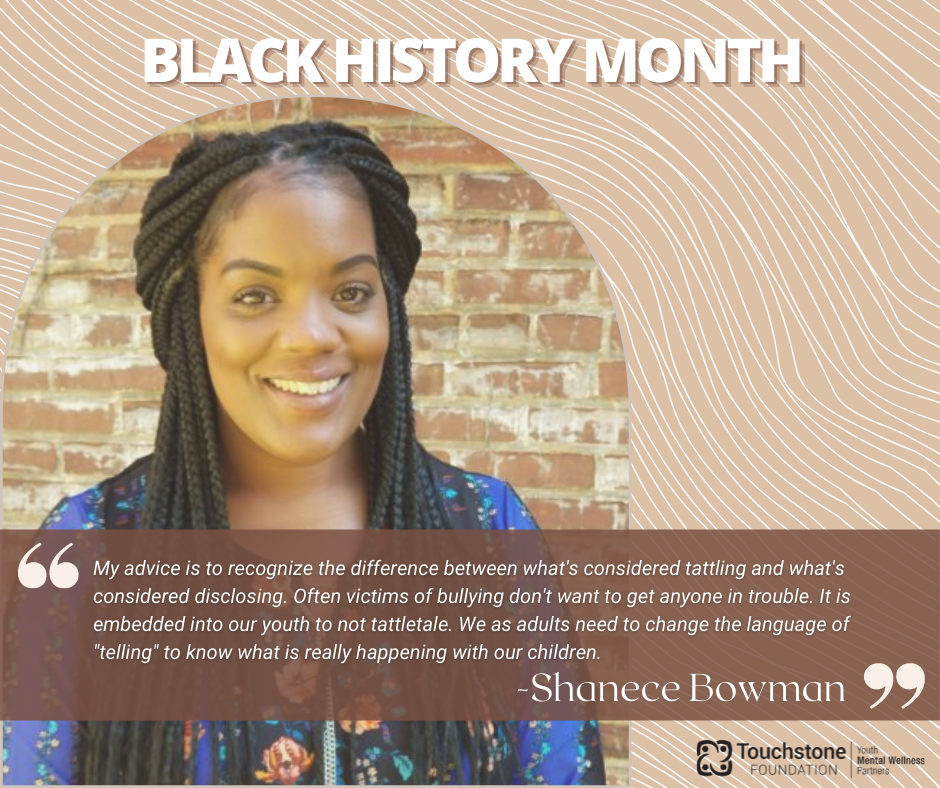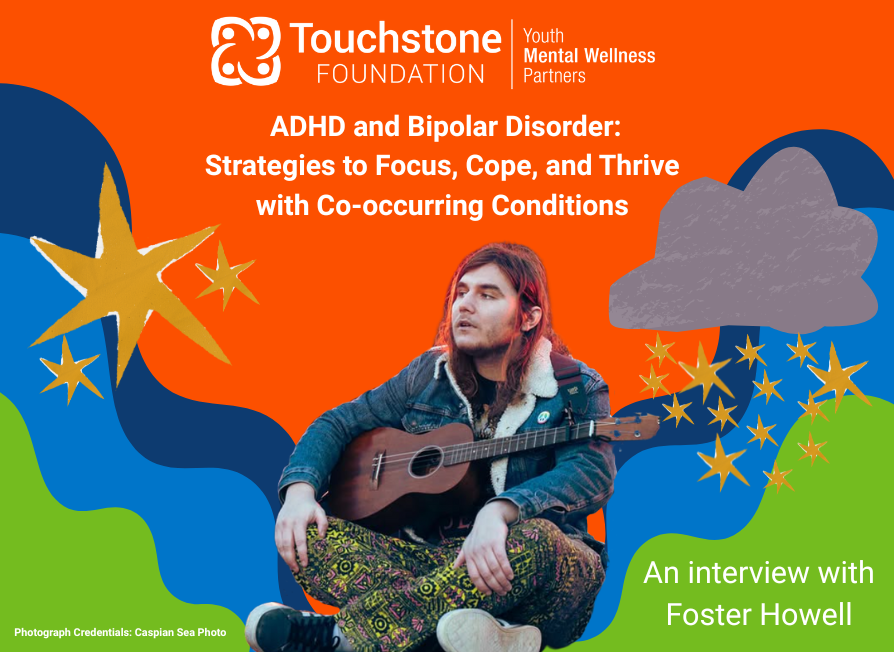
Happy Black History Month! Continuing our Q&A series we are talking to our Programs Manager, Shanece Bowman! Shanece has been with the Touchtone Foundation for 2 1/2 years and is instrumental in helping to provide mental health resources to Lancaster County.
Shanece is a longtime resident of Lancaster city, although she and her fraternal twin were born in Houston, Texas. After spending 3 months in Newborn Intensive Care Unit (NICU) her family moved to the Lancaster area where she was a School District of Lancaster student and graduated from McCaskey Highschool in 2007.
Aside from working at the Touchstone Foundation, Shanece is personally invested in the field of mental wellness. She is currently enrolled at Millersville University in the Master’s in Social Work program with hopes of graduating in 2024. Her goal is to get her Master’s in social work and become a Licensed Clinical Social Worker (LCSW).
“I have a passion for children’s mental health and want to be a visible asset to the Black community to help reduce the stigma associated with receiving mental health services within the minority community.”
What is your journey with mental health/mental wellness?
I suffered in silence with depression and anxiety for most of my adult life. It wasn’t until I gave birth to my oldest son Royce that I realized the importance of seeking help. I noticed that during my lows, he would recognize me struggling day to day. He would say things to me such as “I want to make your day better” or ” I want to put a smile on your face”. The reality of my son seeing how depression and anxiety was affecting me outwardly and drove me to seek help. After giving birth to my twins in October, I struggled with postpartum depression, something I didn’t deal with after having Royce. As the days and weeks passed, I recognized the signs of postpartum depression and reached out to my OBGYN. She prescribed medication to help stabilize my mood, and I have noticed a significant change. I have a deep personal and professional desire to live a healthy life free of struggling mentally with negative thoughts and feelings.
Why do you think mental health awareness is important in the Black community?
Growing up, mental health was never discussed. I remember vividly telling my grandmother who raised me that I was feeling sad when I should be happy. I was faced with a response that stuck with me for a very long time. My grandmother didn’t have the knowledge or resources to help support me, so instead the feelings of sadness were swept under the rug and not discussed in our house. I turned toward my mentors and consumed myself with being involved in extra circular activities where I felt the support I was longing for. The suicide rate amongst Black children is at an alarming high, “self-reported suicide rates rose 80% amongst Black adolescents from 1991-2019.” This is an alarming statistic, as a mother of a 2nd grader, I pay close attention to the changes in his behavior and instead of asking him how his day was, I ask him “What is something that is positive that happened today, and what is something negative that happen today?”. This shift in questioning him has helped to open the dialogue and allows us to discuss ways that the negatives in our lives can be used as a teachable moment.
What is one piece of advice you would give to children/youth in Lancaster looking to improve their mental wellness?
The one piece of advice I would give youth in Lancaster is to recognize the difference between what’s considered tattling and what’s considered disclosing. Often victims of bullying don’t want to get anyone in trouble. It is embedded into our youth to not tattletale. We as adults need to change the language of telling to know what is really happening with our children.




